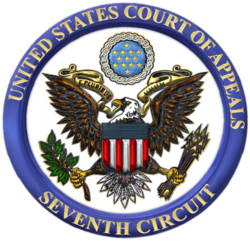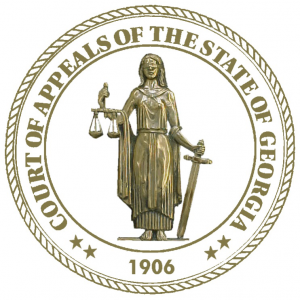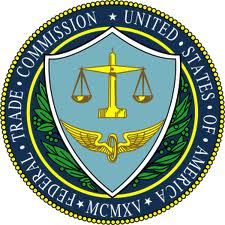The U.S. Court of Appeals for the Seventh Circuit recently upheld the dismissal of allegations that two letters sent to the consumer’s counsel violated the federal Fair Debt Collection Practices Act (FDCPA), reiterating that its “competent attorney” standard applies regardless of whether a statement to the consumer’s counsel is false, misleading or deceptive. A copy of the opinion in Bravo v. Midland Credit Management, Inc. is available at: Link to Opinion. In a prior action, the debtor sued a debt collector for alleged violations of the FDCPA. The case settled with the collector settling and releasing two of the debtor’s debts. After settlement,…
Posts tagged as “Debt Collection”
The U.S. District Court for the District of Oregon recently granted summary judgment in favor of a debt collector, ruling that the collector’s voice mail messages for the debtor did not unlawfully communicate with a third party under the federal Fair Debt Collection Practices Act (FDCPA) and related state law, because the collector could not “reasonably foresee” that debtor’s boyfriend and manager would overhear the voicemail messages left on her cell phone. A copy of the opinion in Peak v. Professional Credit Service is available at: Link to Opinion. A debtor’s unpaid account was referred to a debt collector. The debtor negotiated a…
On Jan. 7, the Expired Debt Act (EDA) was introduced in the Rhode Island House of Representatives and referred to the House Committee on Judiciary. The bill was introduced by State Representatives Shekarchi, Solomon, Regunberg, McEntee, and Craven. Since 2007, Rhode Island has had its own Fair Debt Collection Practices Act (RIFDCPA) that is, for the most part, identical to its federal counterpart. The EDA, however, introduces new definitions and restrictions related to debt collection. The EDA defines a “collector” as “a person collecting or attempting to collect an alleged debt arising out of a consumer transaction.” The definition is…
The U.S. Court of Appeals for the Seventh Circuit recently reversed a district court’s denial of class certification in a putative class action alleging that a debt collector violated the federal Fair Debt Collection Practices Act (FDCPA) by sending supposedly misleading letters to Illinois residents trying to collect time-barred debts. A copy of the opinion in Scott McMahon v. LVNV Funding, LLC is available at: Link to Opinion. The plaintiff alleged that the defendant debt collector violated the FDCPA because it sent “dunning letters containing language that would mislead an unsophisticated consumer into believing that the debt is legally enforceable” even…
The Court of Appeals of Georgia, Second Division, recently held that a debt collector did not violate the federal Fair Debt Collections Practices Act (FDCPA), holding that even if the alleged misrepresentations in the debt collector’s affidavit were technically false, they were not material and thus failed to state a claim. A copy of the opinion in Summer v. Security Credit Services LLC is available at: Link to Opinion. In August 2006, a national bank issued a credit card to the debtors, who defaulted by failing to pay the account. In April 2011, the issuing bank and a debt buying company…
The U.S. Court of Appeals for the Second Circuit recently reversed dismissal of a federal Fair Debt Collection Practices Act (FDCPA) claim based on the statute of limitations, holding that an FDCPA violation occurs when a bank freezes a debtor’s bank account, not when a debt collector sends a restraining notice to the bank. In so ruling, the Court distinguished the rulings in Maloy v. Phillips, 64 F. 3d 607 (11th Cir. 1995) and Mattson v. U.S. W. Commc’ns, Inc., 967 F. 2d 259 (8th Cir. 1992), which held that an FDCPA violation occurs when the alleged unlawful debt collection…
The U.S. District Court for the District of Oregon recently held that a notice provided pursuant to 15 U.S.C. 1692g that also contained additional language requesting that a dispute of the debt “please” be sent in writing violated the federal Fair Debt Collection Practices Act (FDCPA). In so ruling, the District Court held that such additional language overshadows or is inconsistent with a consumer’s right to orally dispute the debt within the 30-day period under 15 U.S.C. 1692g, and constitutes a false representation or deceptive means to collect or attempt to collect a debt under the FDCPA. A copy of…
The U.S. Court of Appeals for the Sixth Circuit recently affirmed judgment on the pleadings in favor of a debt collector because the voicemail in question, which was left at the plaintiff’s business, was not a “communication” as defined by the federal Fair Debt Collection Practices Act (FDCPA) because it did not convey information about the debt. A copy of the opinion is available at: Link to Opinion. A debt collector sent a letter to the debtor’s business requesting payroll information and later left a voicemail at the debtor’s business that stated the caller’s name, the name of the company…
The U.S. District Court for the Middle District of Florida recently denied a motion to dismiss an amended complaint alleging that a time-share association violated the Florida Consumer Collection Practices Act (FCCPA) and the federal Telephone Consumer Protection Act (TCPA), holding that: A debtor need not use any precise language or magic word to notify a debt collector that the debtor is represented by legal counsel with respect to a debt; A voicemail message merely asking the debtor to return the call to discuss the debt was a debt collection communication; and Declaratory relief may be available under the TCPA.…
The U.S. Court of Appeals for the Eleventh Circuit recently confirmed that an entity is not a “debt collector” under the federal Fair Debt Collection Practices Act, where it does not regularly collect on debts owed to a third party, and debt collection is not the principal purpose of the entity’s business, even when the debt was in default at the time the entity acquired it. A copy of the opinion is available at: Link to Opinion. A lender sued a borrower to collect credit card debt. The parties entered into a settlement agreement, but the borrower failed to pay…
The U.S. Court of Appeals for the Eleventh Circuit recently affirmed the dismissal of a borrower’s allegations under the federal Fair Debt Collection Practices Act and the Florida Consumer Collection Practices Act as to one letter, the purpose of which was to request additional information, but reversed as to two other letters, holding that they were sent in connection with the collection of a debt. A copy of the opinion is available at: Link to Opinion. The plaintiff’s mortgage loan went into default and the law firm representing the lender sent the borrower three letters. Two weeks later, the borrower…
The operators of a fraudulent debt collecting scheme have settled Federal Trade Commission charges against them by agreeing to be banned from the debt collection business and telemarketing. The defendants were named in an FTC complaint last year, which alleged that they collected millions of dollars from Spanish-speaking consumers throughout the country by demanding they pay non-existent debts. The various companies and individuals were said to have been threatening their victims with lawsuits and arrest and immigration status investigations if they did not agree to make payments on the falsified debts. The settlement orders that the fraudulent company and related…










